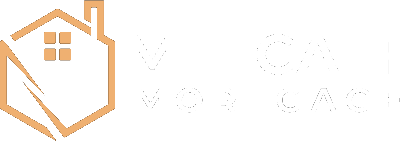Conventional Vs. FHA Loans: Which is Right for You?
When you're ready to purchase a home, one of the most important decisions you’ll face is choosing the right mortgage. With so many options out there, it can be overwhelming—especially when you start hearing terms like "Conventional" and "FHA" loans. So, what's the difference between these two? And more importantly, which one is the best fit for your unique financial situation?
In this post, we’ll break down the key differences between Conventional and FHA loans, so you can make an informed decision that works for you.
Conventional Loans: A Great Option for Those with Strong Credit
Conventional loans are the traditional mortgage option that most homebuyers think of. They’re offered by private lenders (like banks and credit unions) and are not backed by the government. Here’s why you might consider a Conventional loan:
✔️ Better for Strong Credit Scores
To qualify for a Conventional loan, you’ll typically need a good credit score (usually 620 or higher). If you have excellent credit (700+), you’re likely to get the most favorable interest rates, which can save you a significant amount of money over the life of your loan.
✔️ No Mortgage Insurance with 20% Down
Unlike FHA loans, Conventional loans don’t require mortgage insurance if you put down 20% or more. If you put down less than 20%, you’ll likely have to pay private mortgage insurance (PMI), but it’s usually cheaper than the mortgage insurance premiums required for FHA loans. You also have the option of putting 5% down, or even 3% down if you meet certain income limits.
✔️ Flexible Terms and Loan Amounts
Conventional loans offer a variety of terms (15, 20, or 30 years), and in some cases, they also allow for larger loan amounts—ideal for buyers in areas where housing prices are high.
✔️ Possibility of Lower Overall Costs
While Conventional loans typically require a larger down payment, they can end up costing you less in the long run compared to FHA loans, especially if you can avoid paying mortgage insurance.
FHA Loans: Perfect for First-Time Buyers or Those with Lower Credit
FHA loans, on the other hand, are government-backed mortgages insured by the Federal Housing Administration. These loans are designed to make homeownership more accessible for individuals who may not qualify for a Conventional loan. Here's why an FHA loan might be right for you:
✔️ Lower Credit Score Requirements
If you have a lower credit score (as low as 580), FHA loans are more forgiving. This can be a great option for first-time buyers or anyone who’s had some credit challenges in the past but is ready to purchase a home.
✔️ Lower Down Payment Options
One of the biggest draws of FHA loans is that they require a smaller down payment—sometimes as low as 3.5%. If saving for a large down payment feels out of reach, an FHA loan can help you get into a home sooner.
✔️ Mortgage Insurance is Required
Unlike Conventional loans, FHA loans require mortgage insurance premiums (MIP) both upfront and annually, no matter how much you put down. However, if you put down less than 10%, you’ll be required to pay MIP for the life of the loan. This can add to your overall monthly costs, but it’s often the trade-off for a lower down payment and more lenient credit requirements.
✔️ Great for First-Time Homebuyers
FHA loans are specifically designed to help first-time homebuyers or those with limited financial history get into the market. So if you’re new to the world of homeownership and don’t have a lot of cash saved up or a long credit history, an FHA loan might be a great starting point.
So, Which One is Right for You?
The decision between a Conventional and FHA loan really depends on your financial situation. Here are a few things to consider:
Good Credit & Large Down Payment: If you have a strong credit score and can afford a larger down payment (20% or more), a Conventional loan might be your best bet. It’ll allow you to avoid mortgage insurance and potentially save money in the long run.
Lower Credit Score & Smaller Down Payment: If you’re a first-time homebuyer, have a lower credit score, or need a smaller down payment, an FHA loan could be the more accessible option to help you get started.
Long-Term Goals: If you’re in it for the long haul and want to avoid paying mortgage insurance for years, you may want to consider a Conventional loan, especially if you’re able to put down 20% or more.
Need Help Deciding? Let’s Talk!
No matter where you are in your home buying journey, the right loan can make a big difference in your experience. Whether you’re weighing the pros and cons of an FHA loan or thinking a Conventional loan might be a better fit, I’m here to help guide you through the process and ensure you make the best choice for your needs.
Got questions or want to dive deeper into the details of your mortgage options? Drop me a message—I’d love to help you navigate the world of home loans and make your dream home a reality!

